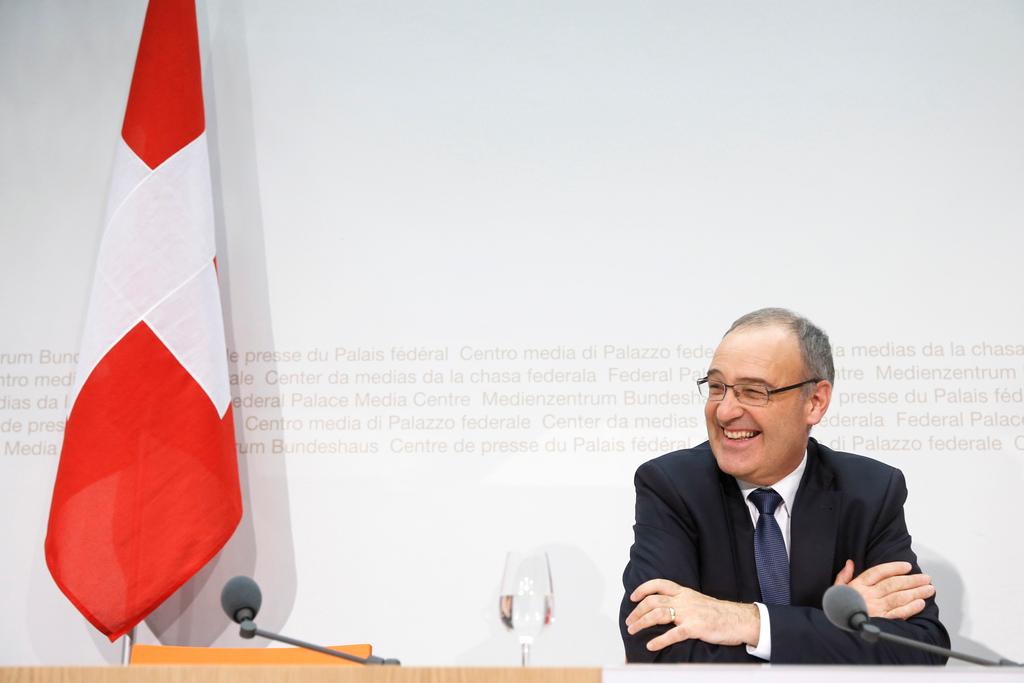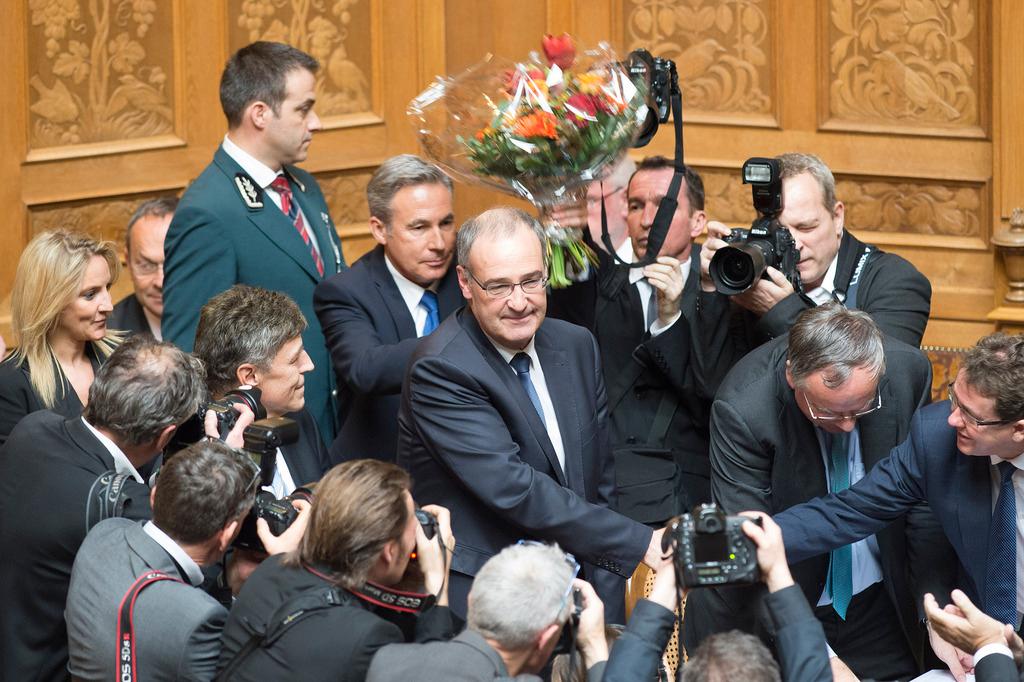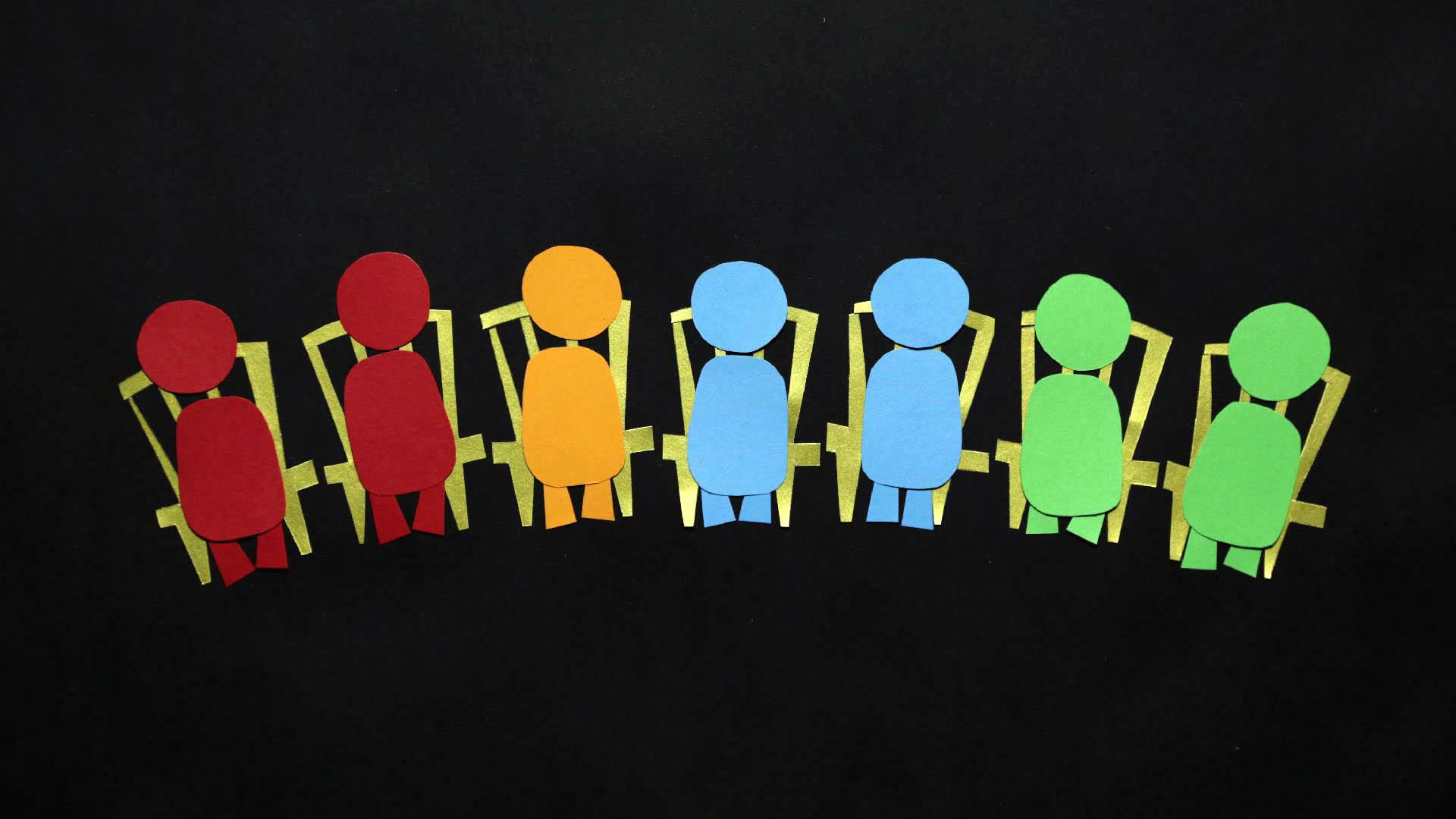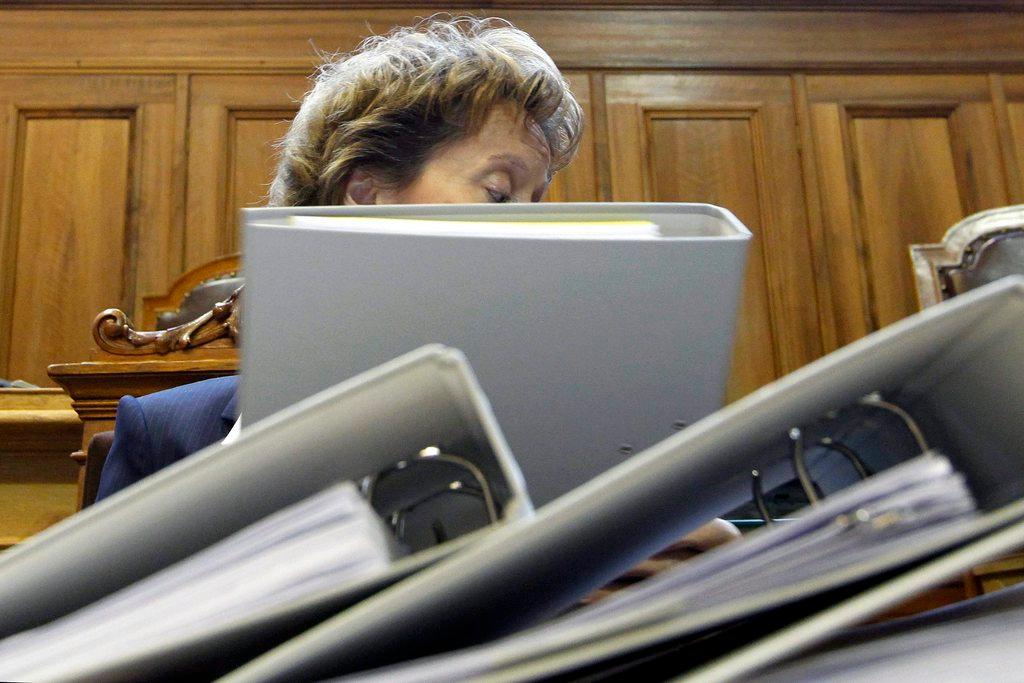Wary press split over farmer Parmelin

The Swiss press have given Guy Parmelin, the new cabinet minister, a cautious welcome. Several question whether he has what it takes to help lead the country. Many agree it is now up to the conservative right Swiss People’s Party to change its ways.
The Swiss papers were full of questions about Parmelin and the People’s Party after his election by parliament in the third round of voting on Wednesday.
Parmelin, a 56-year-old farmer and winegrower from Bursins in canton Vaud, has sat in the House of Representatives since 2003.
“But he remains largely an enigma,” wrote the French-speaking Le Temps on Thursday. “How is he going to pass from being the ‘smallest common denominator’ to that of cabinet minister? Will the army corporal become a general?”
The People’s Party put forward three candidates – Parmelin; Thomas Aeschi, a 36-year-old business consultant from canton Zug; and Norman Gobbi, 38, representing the Lega dei Ticinesi, a rightwing protest movement in the Italian-speaking canton of Ticino who became a member of the People’s Party for the election. The party played the card of national cohesion, putting forward one candidate from each of Switzerland’s main linguistic regions. In the end, Parmelin won, becoming the People’s Party’s first cabinet minister from French-speaking Switzerland.
“In a system where you get elected by your opponents, they had to find the profile of someone who reassures,” wrote Le Temps. “Swiss politics has the magic of allowing relatively ordinary candidates to accede to power for whom people don’t have high expectations. They just have to be good administrators and get on with their colleagues.”
‘Default’ choice
The Tages-Anzeiger daily was more critical. It said it was ‘questionable’ whether Parmelin was the best People’s Party candidate. It said Aeschi was too close to the party strongman Christoph Blocher, and Gobbi was tainted by the Lega dei Ticinesi.
“In the end parliament elected by elimination a man without any distinguishing characteristics,” it wrote.
In his defence, Parmelin’s local newspaper La Côte said he may be the “default choice, but he’s a choice nonetheless”.
“His reassuring, respectable, rural appeal, good sense and grounding in Vaud were decisive arguments for his victory,” it wrote.
The Vaud newspaper 24Heures said reducing Parmelin’s election to chance and circumstance would be a crass injustice.
“He is a competent, intelligent, gifted politician and has a human side to him that make him a solid, reliable and thoughtful partner,” it wrote, adding that this was the first time in 17 years that someone from the canton had been elected to the cabinet.
It is also the first time that the cabinet has comprised three ministers [out of a total of seven] with French as a mother tongue since 2006. While paying attention to the language balance, the Christian Democrats and Social Democrats had clearly chosen the most ‘centre-friendly’ candidate, wrote the Neue Zürcher Zeitung (NZZ).
New responsibility
With the election of Parmelin, the People’s Party, which won a record 29.4% of the vote in October’s federal elections, now has two seats for the first time since 2007.
Many German-speaking papers wondered whether his election would help stabilise consensus politics between the main parties after years of tension.
“Many people are making fun of Parmelin and consider him as a mediocre, uninspiring and boring,” wrote Der Bund. “But perhaps he will one day enter the history books as being a cabinet minister who helped calm Swiss politics…and enable the party to become more moderate and flexible.”
“The People’s Party now has the duty to present solutions, seek compromises and build political majorities,” wrote the Berner Zeitung.
The Tages-Anzeiger urged the party to become a ‘constructive force’ and reject its ‘spirit of opposition’ to help participate in the big issues facing the country.
The Neue Zürcher Zeitung (NZZ) agreed that the party’s ‘non-stop moaning about other parties has to stop’ and it had to refrain from using political instruments like referendums and initiatives to push its own agenda.
The Basler Zeitung, meanwhile, said the party faced ‘very demanding times’ ahead. After its victory in the October elections and two cabinet seats, Switzerland’s biggest party must ‘carry the responsibility of everything that doesn’t work’.
“The party today faces its greatest risks,” it wrote.
Apart from short news reports on Associated Press and Reuters and Euronews, the cabinet election received limited international coverage.
One of the few international newspapers to cover the story, the Wall Street Journal, wrote: “The new Swiss cabinet was elected on Wednesday, with shift to the political right likely to make relations trickier with its European Union neighbours as the wealthy Alpine country tries to reduce inward migration.”

In compliance with the JTI standards
More: SWI swissinfo.ch certified by the Journalism Trust Initiative





You can find an overview of ongoing debates with our journalists here. Please join us!
If you want to start a conversation about a topic raised in this article or want to report factual errors, email us at english@swissinfo.ch.